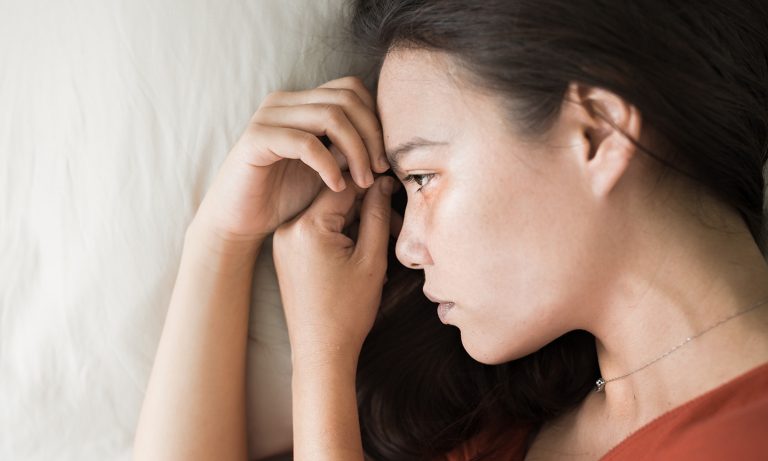Some illnesses can’t be swept under the rug—for instance, rashes or swollen joints. But in other cases, medical problems remain invisible, and patients prefer to keep them that way.
Do you have one of these frequently hidden conditions? Opening up to your doctor and your loved ones about your health problems, no matter how difficult, can help you get the treatment and support you need to recover and cope.
1. Overactive Bladder
If you find yourself heading to the restroom eight or more times per day—or waking up to urinate more than twice per night—you may have an overactive bladder. Medicines that calm your muscles and nerves might help alleviate this condition. But of course, your doctor can’t prescribe them unless he or she knows about your symptoms.
2. Memory Loss
Some people keep quiet because they believe cognitive lapses come naturally with age. Others stay mum and fear a diagnosis of Alzheimer’s disease. Often, however, the answer lies somewhere in the middle. Your doctor may find a treatable cause for memory slips, such as vitamin deficiencies, blood clots, or medication side effects. If you do have dementia, your healthcare team can teach you ways to keep your mind as sharp as possible.
3. Sexual Health Issues
Though they’re difficult to discuss in a medical setting, many problems that seem to start in the bedroom actually have a medical cause. For instance, certain medicines can affect sexual function and even desire. Chronic conditions, such as heart disease or cancer may also interfere; treating these issues can help with intimacy problems, too.
4. Diabetes
You might not want to seem like the odd one out at meals. Or you may feel overwhelmed by all the steps involved in taking care of your diabetes. Either way, it’s important to come to terms with your condition. Hiding diabetes from your friends and family—or even convincing yourself it’s not a big deal—can result in serious complications. High blood glucose can damage your blood vessels, nerves, eyes, feet, and heart.
5. Depression
It’s normal to feel blue sometimes, especially after losses in your life. Feeling sad for more than a few weeks, however, could signal a more serious problem. Also watch for other warning signs, such as a lack of energy, poor appetite, trouble sleeping, or loss of interest in activities you used to enjoy. Let your doctor know how you feel. Medications, counseling, or a combination of the two can help.
6. Alcohol Abuse
Drinking problems can sometimes sneak up on you. For one thing, alcohol has different effects on your body as you age. If you find yourself reaching for a drink earlier in the day or unable to control your own alcohol use, talk with your doctor. He or she can suggest strategies for cutting down or quitting altogether.
7. Miscarriage
According to a recent survey, nearly half of adult women who lose a pregnancy feel guilt, shame, or as if they are to blame. In fact, most miscarriages occur randomly. And they’re far more common than you’d think. As many as 1 in 5 pregnancies ends in miscarriage. If more people talked openly about pregnancy loss, everyone might feel less isolated, the study authors say.
8. Incontinence
You might feel a leak of urine when you cough, laugh or sneeze, or see brown spots in your underwear. You might feel strong urges to go and fail to make it to the bathroom on time. Either way, fecal or urinary incontinence can cause severe embarrassment. But keep in mind that your doctor has heard about these issues before. Treatments like surgery, bowel or bladder training, and diet changes can help alleviate symptoms.
source:fakazanews

